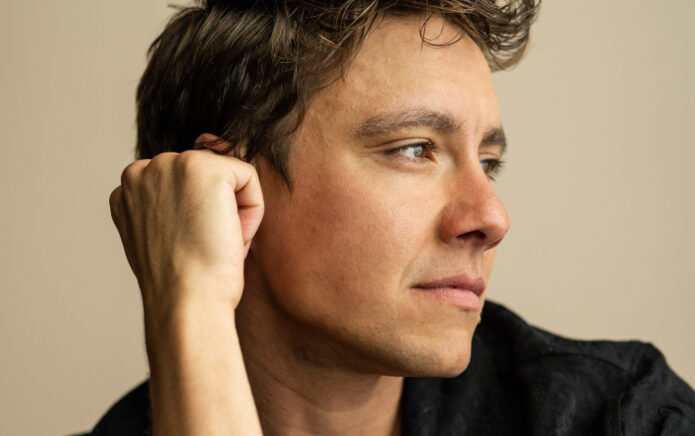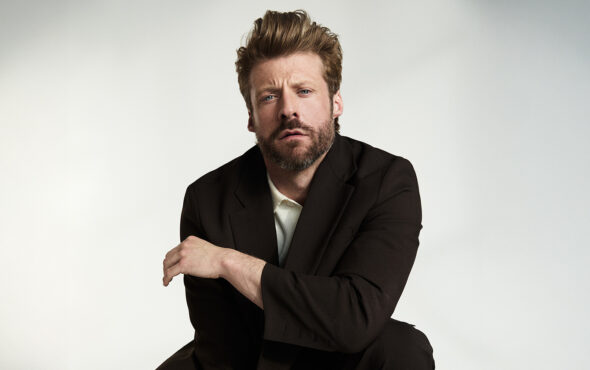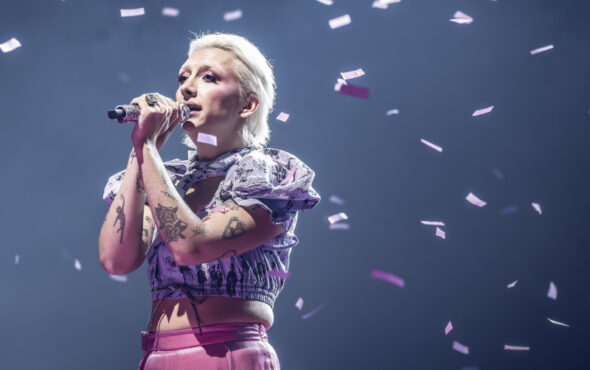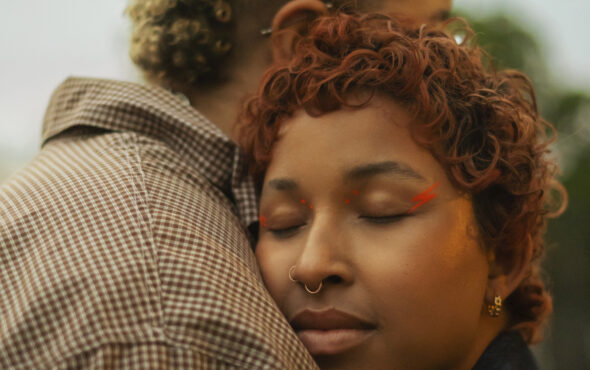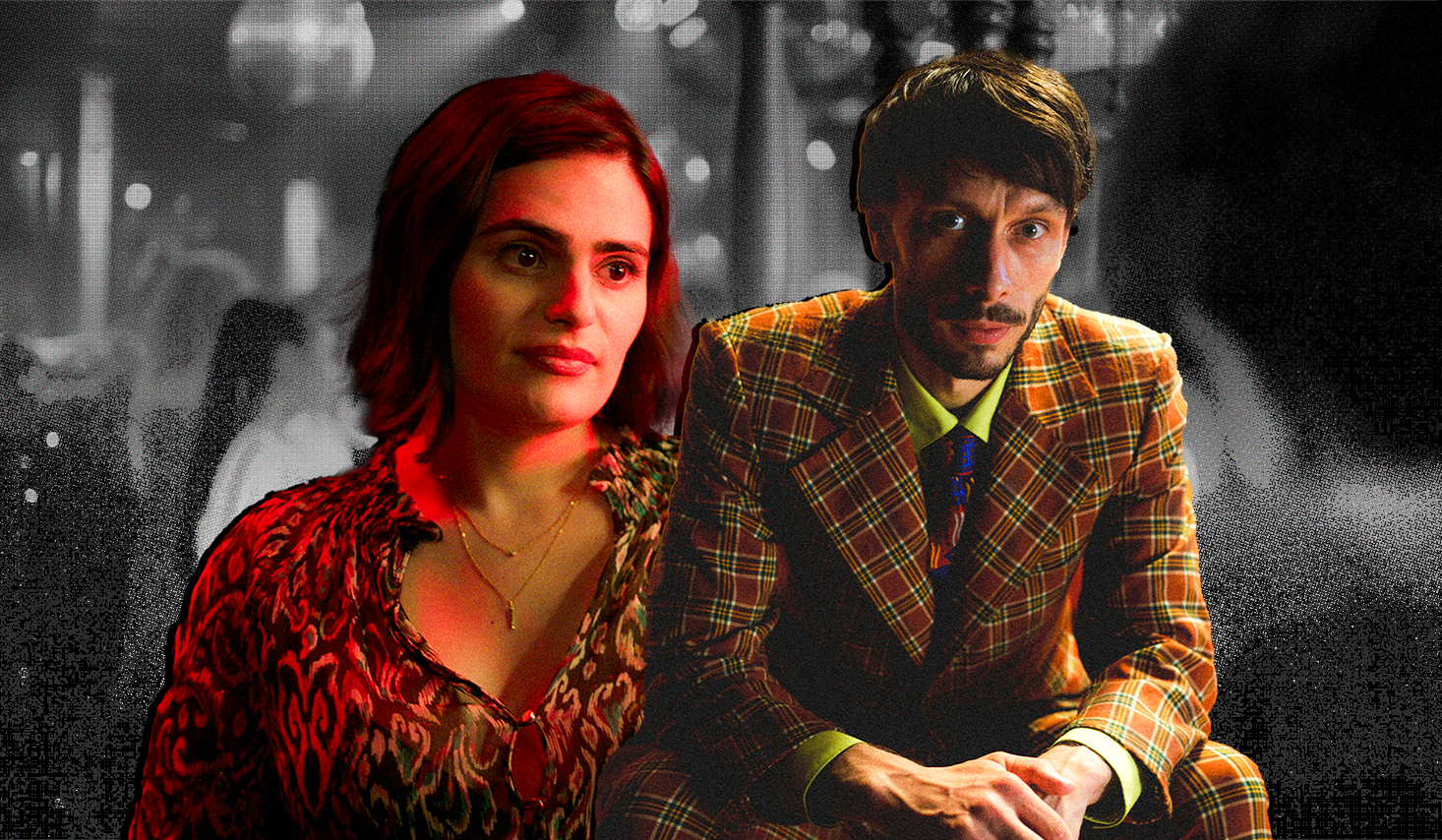
Richard Gadd is, understandably, quite nervous. This week sees the release of his Netflix series Baby Reindeer, a “comedic psychological thriller” (as he describes it) based on his acclaimed one-man play and Edinburgh Fringe hit of the same name that dramatises the queer comedian’s harrowing true experience of being stalked by a middle-aged woman named Martha (Jessica Gunning). “What’s the subscriber count for Netflix now, 260 million worldwide? I’m not saying all of them will watch it, but there’s a certain degree of anxiety!” he laughs.
Deeply horrifying, and at times, deeply hilarious, Baby Reindeer tackles some incredibly delicate themes, from sexual abuse to violence and substance abuse. And, refreshingly, Richard subverts the victim-stalker trope by depicting both Donny, the character he’s based on, and Martha as morally ambiguous; rather than simply paint himself as the hero and Martha the villain, the classic ‘insidious and evil’ stalker trope. “In an age where everyone, for the most part, is trying to be perfect, it felt like an important thing to do, to stand up and say, ‘I’ve made mistakes, I want to own them and try and be better,’” says Richard.
Baby Reindeer also explores Richard’s past experiences with shame over his attraction to Teri (Nava Mau), a “smart, funny, confident and strong” trans woman who isn’t afraid to call him out on his “shit”. Nava, who rose to fame on the cult LGBTQIA+ series Generation, tells GAY TIMES that Baby Reindeer is the “first time” she’s read a script that was clearly “written by someone who’d actually known and loved a trans woman”: “The kinds of writing that I see for trans characters treats us like we’re aliens, like no one has ever known us before, like we’re crafted out of imagination. Teri felt like she was crafted out of reality, out of truth, out of heart.”
Here, Richard Gadd speaks with GT about Baby Reindeer’s rare portrayal of sexual and psychological abuse, how much of the story is “based in truth” and his hope for survivors to find “comfort” in the series. As for Nava Mau, the star discusses the importance of telling truthful stories about the trans experience and celebrates the trailblazing characterisation of Teri. Content warning: this interview mentions possibly triggering subjects, including sexual abuse and anti-trans violence – reader discretion is advised.
GT: Richard, the story of Baby Reindeer has been on stage for quite a few years but, now, it will be available on a global scale for millions to see. How are you feeling about that?
Richard: I feel nervous. I really want people to like it. It’s a very different scale, as you say, to performing it to 250/300 people a night. What’s the subscriber count for Netflix now, 260 million worldwide? I’m not saying all of them will watch it, but there’s a certain degree of anxiety! It’s very surreal, going through different periods in my life and now almost announcing it to the world on this scale. Yeah, it’s very daunting. It’s exciting too, but a mixture of emotions.
GT: Baby Reindeer subverts everything that you would expect to happen in a story such as this, in the psychological thriller genre. At times it’s hilarious, and it’s often harrowing. How much of this has been dramatised for a television format, as opposed to what actually happened?
Richard: It’s quite complicated. A lot of it is very true, and all of it is emotionally true. Obviously, we can’t carbon copy people and identities, for various artistic and legal reasons. But, it is certainly based in emotional truth and lots of the action you see in it happened for real. Sometimes it’s more truthful than I remember. I watch it, and because I’ve had a bit of distance from it, I sort or forget what actually happened. It becomes something else. But with TV, a lot of it relies on structure and chaos and cliffhangers, certain timelines need to be jumbled about and certain things need to be changed to satisfy a television audience. The brushstrokes are broadly true.
GT: And how much of the character of Donny is you?
Richard: It’s reminiscent of an old, very real, version of me that was going through a period where I was lost in the aftermath of post-abuse. I’ve had a lot of distance from it now. I’m not saying I’m Mister Perfect – Nava will tell you! I’m not bouncing around the street with a skipping rope. It’s important for the show to be received as a piece of art. I do sometimes think, ‘Why are you doing this? I’m so frustrated with myself,’ and then I do feel, like in episode four, sorry for me and can’t believe things happened. It’s quite hard to watch at times, yeah.
GT: Nava, what drew you to this story?
Nava: I got to read the entire series and I could not stop. I felt, as I was reading it, that it was the best thing I ever read. It felt like the first time I’d ever read a piece of writing, a screenplay, that was written by someone who’d actually known and loved a trans woman. That’s so rare. I think, often, the kinds of writing that I see for trans characters is… It treats us like we’re aliens, like no one has ever known us before, like we’re crafted out of imagination. Teri felt like she was crafted out of reality, out of truth, out of heart. I had to be part of it, I wanted it so badly! I really felt like I had a lot to offer to the role, and the role had a lot to offer me.
GT: Teri is a fierce, hilarious and self-assured trans woman, which still feels quite rare to see in mainstream media. As Donny describes her, she’s “smart, funny, confident and strong”. What does it mean to you to play this character?
Teri: She taught me a lot. Richard knows that I’m a lot more shy and reserved! I’m more soft. Teri is so bold, empowered and witty. It was a lot of fun, and I think it gave me permission to really allow my emotional responses to flow through my body, and not have to hold them back. I felt proud to play her, and I hope that in portraying her, that the character could end up belonging to an audience and not just to me or Richard.
GT: She’s quite trailblazing, especially in the moment that she refuses to go back into the closet for Donny…
Richard: She’s the most likeable character in the show, and the most brazen. She holds Donny to account, which he very much needs. What I love about Nava’s performance is that she has that vulnerability. As an audience you think, ‘Just leave him!’ but there’s something that keeps her staying there, maybe a combination of seeing something truthful in him. He does genuinely like her, he’s just steeped in this awful shame cycle. At the same time, she’s not going to put up with any of his shit. There’s a contradiction in the character that Nava got so beautifully. I really want people to love Teri, and I think they will. It’s the character that, out of everyone, I wanted to get the most right.
GT: Donny makes a lot of questionable decisions in the series. For you, Richard, that must be much harder to depict, to be completely honest with the audience what happened, rather than tweak history and paint him as a flawless hero?
Richard: The second you start writing the truth from a disingenuous place, the audience will smell it from a mile away. We do make mistakes as human beings from a well-meaning place, like we don’t want to upset someone. We create these avalanche of problems because we don’t have the courage to say it like it is. That’s Donny’s problem, he can’t be honest. His confidence has been ripped from him, due to what happened with the Darrien character. That’s what allows him to have such a lack of self when it comes to owning responsibility and how he’s behaving with Martha. When you’re lost in a sea of confusion and the aftermath of abuse, you lack a clarity of self and make decisions because you don’t have the strength to rely on your own thoughts and feelings.
There was an easy version of this show where I offered Martha a cup of tea and it was, ‘I was really nice! Look at these awful things she’s doing to me!’ but I was a mess back then and it felt disingenuous and unfair on her. Also, I felt like I would be writing the show from a place that wasn’t interesting. The moral ambiguity of the piece is quite interesting, and something we haven’t seen that much on television before. In an age where everyone, for the most part, is trying to be perfect, it felt like an important thing to do, to stand up and say, ‘I’ve made mistakes, I want to own them and try and be better.’
GT: It’s also rare to see the stalker character in this light. The stalker character is often represented as the creep outside of the window and, obviously, there’s still elements of that here, but a lot of emphasis on mental health…
Richard: I wanted to get that across. There’s been some amazing films on stalking that usually present the stalker as an insidious evil. They’re normal, but gradually turn the screw. My experience of being stalked in real life was that this is a vulnerable person who genuinely believed in their version of the world, that I was the answer to all of their problems. It is a mental illness and fantasy addiction of some kind. I felt like we hadn’t seen that, and it’s important to make that quite clear.
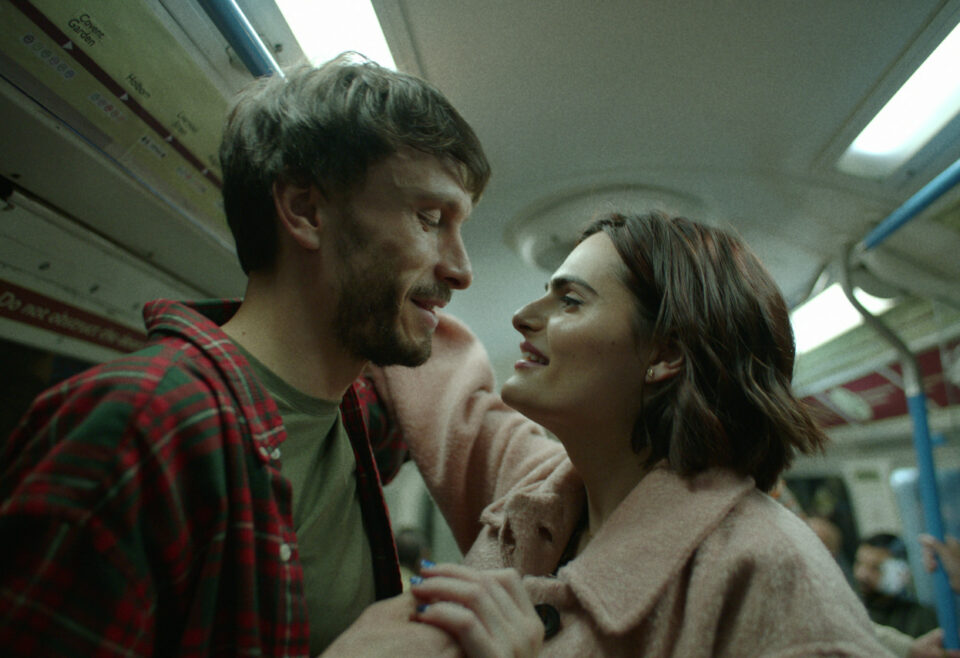
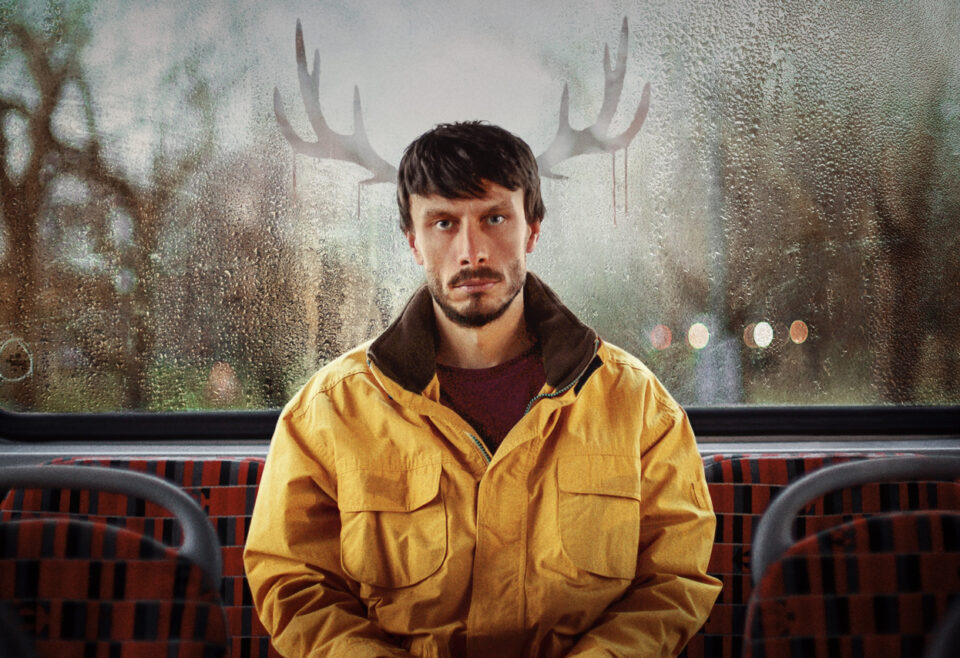
GT: How difficult was it for you to relive prior mistakes and traumatic experiences? There are a few difficult scenes to watch, from the scene with Darrien to Donny having a mental breakdown on stage…
Richard: It’s difficult. I know you found those scenes difficult as well [Nava]. It’s essentially revisiting the worst period of your life and reliving the emotion and actions all over again. Everyone has a period in their life, it can be a divorce or breakup or bereavement, where they think, ‘I never want to be in that again.’ I was in that for a one-year writing and seven-month filming process, and it does take its toll. But, I hope there’s a wider purpose to this show where certain things can bring people watching a sense of comfort. The main thing that goes hand-in-hand with sexual abuse, in particular, is a silence and self-blame. That can be quite damaging, so if it helps people feel less alone and can help them speak to someone, then you’re pushing towards a greater purpose, I hope.
Nava: It was difficult for me, too. Every single day on set, I was doing something I had never done before, whether that’s technical or emotional. I had to learn ballet! One of the hardest things, truthfully, was having to yell at Donny. I have never yelled at somebody! I just didn’t know how that kind of anger surfaces, and how you contend with hurting somebody in that way. And, of course, the attack from Martha was… I’ve experienced violence like that. Even if I didn’t want to relive it, your body inevitably reactivates a certain physical memory. You have to take care of yourself, before, during and after. That’s the only way through it, otherwise it can reopen wounds that you’ll need to deal with.
GT: I always say that I want to see less trauma-based stories about LGBTQIA+ people, but on the other hand it’s still important to educate audiences about certain queer issues. For example, the transphobic rhetoric from Martha and Donny’s shame and ignorance over his attraction to a trans woman. The latter. especially, is a narrative we don’t see much of in the media. Where do you both stand on sharing stories like this?
Nava: I am not one to shy away from the truth. I understand the need for us to have a wide spate of stories that depict queer and trans people. We need to see people living joyfully, triumphantly and achieving success. We also need to grapple with the realities of the world, and the reality is that our world creates a lot of violence and shame. It’s our responsibility to break through that, and I think one way of doing that is by being honest. Especially men, we live in a culture that does not give permission to men to express their emotions and talk about their trauma. That’s what Richard’s done, so I feel really strongly that the people who need this story will find it.
Richard: Being LGBT+ myself, I’m aware of that conversation and with the show coming out, people might receive it or be challenged by it in some way. It goes all the way back to writing the truth of the experience. I would never behave that way now, but when I was young, growing up in a small town in Scotland, falling in love with a trans woman… The synaptic sort of shame hit me before I had the ability to articulate it and rationalise it. People who are on the LGBT+ spectrum do sometimes go through that period of shame before they have that self-acceptance, and that is what is captured in the show. There was a part of me that thought it would be easier to rub that out, but again, it would feel disingenuous and disingenuous to the real-life person as well. Again, owing up to it and doing interviews like this where you say, ‘That was wrong, I wouldn’t do it now’ shows a little bit more than pretending it was okay in the first place.
I wanted to make sure that Teri was the most redeemable character in the show, and she is the only one with a happy ending. It was important for me to have that, and to show that Donny gets absolutely nothing out of treating her that way. It ends with him crying on stage and having messed it up because I hated myself more than I loved her. Then, he stands in the street and watches her go out with a much better guy. That shows where that shame gets you, so I’m hoping there’s a strong parable in the storyline that will teach people that it’s not right. Sorry to jump around a bit, but I wanted to throw a bit of positivity Nava’s way for that traumatic fight scene, which was traumatic for everyone. I saw them do that fight scene, rolling around on the floor take after take… Nava, you had to cry for ten minutes straight and you stayed in it. I thought, ‘I’m so lucky to have these two women on the show.’ It was incredible to watch.
Nava: I want to add that I had a great time filming that fight scene. It was the highlight!
GT: There will, inevitably, be trans people at home who identify with Teri’s story and victims of sexual abuse who identify with Donny. How does it feel knowing that these characters will be somewhat of a gateway for these viewers to explore some pretty difficult emotions?
Richard: I hope that it helps them, for sure. I would like it to provide comfort for people who have been through something like this. Sometimes, abuse on television is a hooded, masked stranger in an alleyway. ‘Who done it? Who, in this small town, has done this?’ But, a lot of abuse happens in intimate relationships with power and work dynamics. I wanted to, not only show the sexual violence, but the psychological complications that come with it as well. In my experience of working with survivors – shout out to We Are Survivors, the charity that I work for – the warped psychology that leads to the abuse, the grooming shall we say, is just as damaging as the actions themselves.
I hope Baby Reindeer explores why people fall into those traps, as much as it shows you. I hope it provides peace and lets people know they’re not the only ones, lets them know it’s okay. The biggest problem with going through sexual violence is that it’s wicked in its ability to blame yourself: ‘Why did I go there? Why did I do these things? I can’t believe I trusted that person.’ I hope it allows people to undo the embarrassment they feel, and try to open up to a therapist or family member. I like to think that if I had something like Baby Reindeer on television when I was going through all this, that it might’ve provided me with a bit of comfort.
Nava: You mentioned exploring your character’s psychology of being a survivor. I think that, similarly, people do not understand the psychology of trans people. We often have to explain it to people and convince them that we’re even real. So, I hope that trans people will feel empowered in recognising our courage to be a part of the world. Ultimately, I think that most trans people want to be a part of the world. Teri is so unafraid to go after that. She’s willing to try and jump and fall, and get back up again. We see her go through that process, and I hope that it encourages people to believe that they can jump, and if they fall, they can get back up again too.
Baby Reindeer is now streaming on Netflix.
If you have been affected by the subjects in this article, get in touch with Galop, the LGBTQIA+ anti-abuse charity, for any support you may need.
